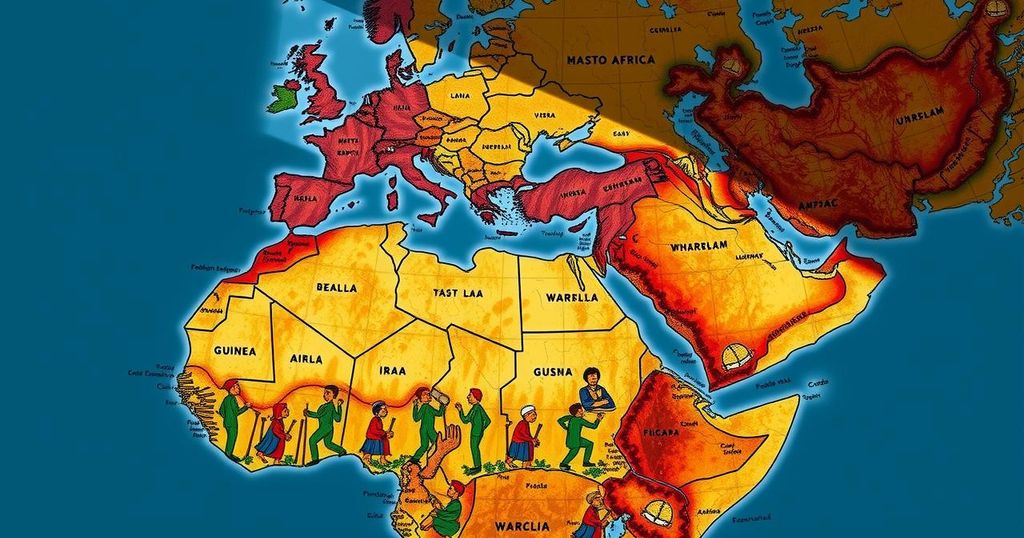Russia Expands Military Influence in Equatorial Guinea Amid Security Challenges

Russia has deployed up to 200 military instructors to Equatorial Guinea to train elite guards protecting President Teodoro Obiang’s regime. This move indicates an expansion of Russia’s influence in West Africa amid diminishing Western presence, reflecting a trend of increased interventionist policies from Moscow. The instructors’ presence is tied to both security and economic interests in the region, particularly in the oil sector.
In recent weeks, Russia has dispatched up to 200 military instructors to Equatorial Guinea, aimed at enhancing the country’s security amid waning Western influence in the region. These instructors are reportedly engaged in training elite military guards in Malabo and Bata, underscoring Russia’s expanding role in West Africa despite setbacks in other countries like Mali. The deployments signify Moscow’s efforts to capitalize on geopolitical tensions while providing protection for President Teodoro Obiang Nguema Mbasogo’s regime, which has been in power since 1979.
Russia’s growing presence in West Africa, specifically through military training and mercenary support, highlights a significant shift in the geopolitical landscape. As Western influence diminishes, nations like Equatorial Guinea may turn to Russia for military aid and defense against potential threats to their governance. Moreover, the interest in local oil and mining opportunities aligns with Moscow’s ambitions to strengthen alliances while capitalizing on resource-rich regions.
This recent military deployment by Russia in Equatorial Guinea illustrates a broader strategy of opportunistic expansion in Africa, seeking to establish influence where Western countries have receded. The initiative not only seeks to bolster the current regime but also serves Moscow’s interests in securing economic opportunities through resources. The unfolding situation in Equatorial Guinea merits close observation, as it may reflect Russia’s long-term strategic ambitions within the continent.
Original Source: www.usnews.com








